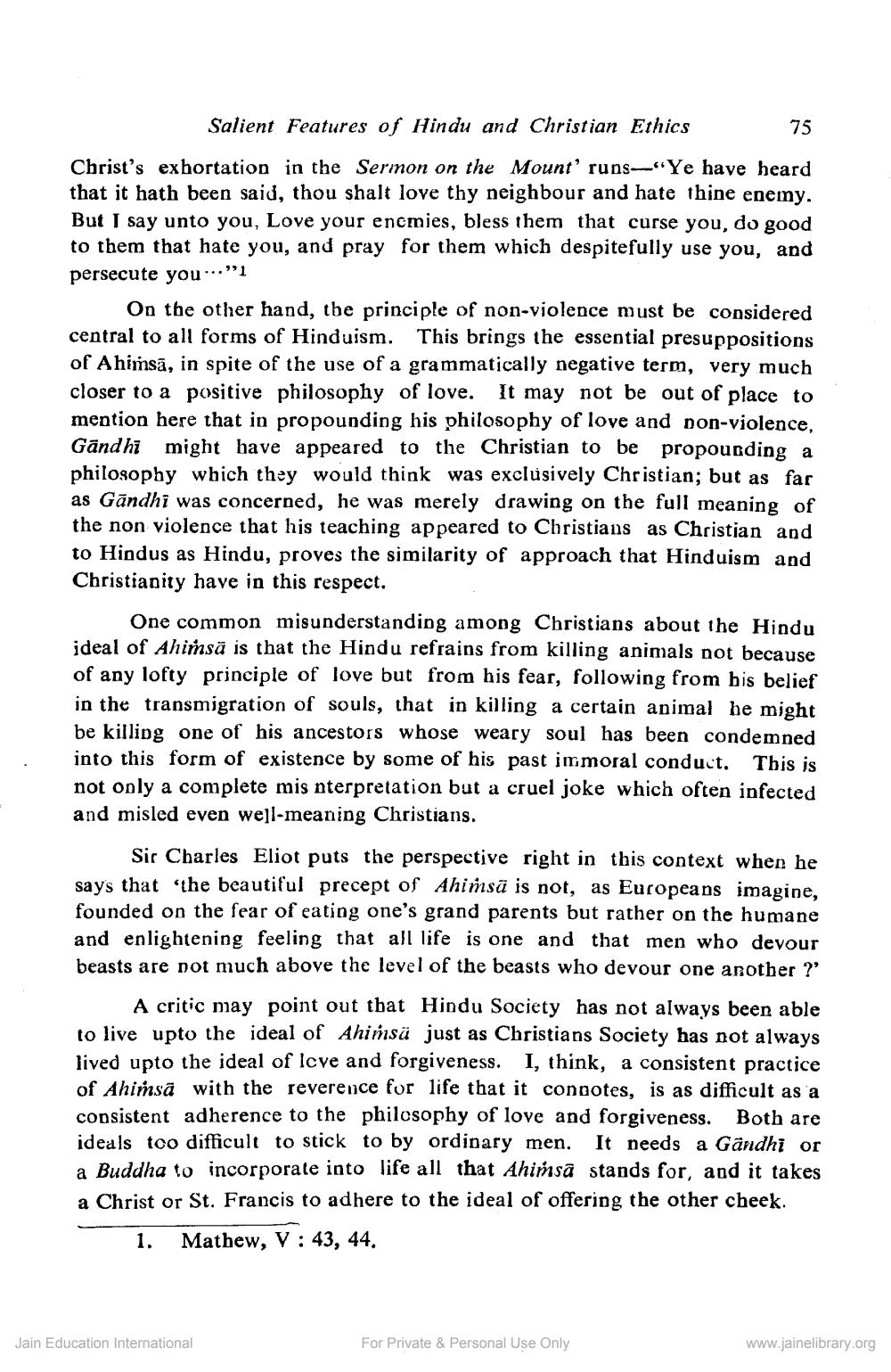________________
Salient Features of Hindu and Christian Ethics
75
Christ's exhortation in the Sermon on the Mount' runs-"Ye have heard that it hath been said, thou shalt love thy neighbour and hate thine enemy. But I say unto you, Love your enemies, bless them that curse you, do good to them that hate you, and pray for them which despitefully use you, and persecute you."1
On the other hand, the principle of non-violence must be considered central to all forms of Hinduism. This brings the essential presuppositions of Ahiṁsā, in spite of the use of a grammatically negative term, very much closer to a positive philosophy of love. It may not be out of place to mention here that in propounding his philosophy of love and non-violence, Gāndhi might have appeared to the Christian to be propounding a philosophy wbich they would think was exclusively Christian; but as far as Gāndhi was concerned, he was merely drawing on the full meaning of the non violence that his teaching appeared to Christians as Christian and to Hindus as Hindu, proves the similarity of approach that Hinduism and Christianity have in this respect.
One common misunderstanding among Christians about the Hindu ideal of Ahińsā is that the Hindu refrains from killing animals not because of any lofty principle of love but from his fear, following from his belief in the transmigration of souls, that in killing a certain animal he might be killing one of his ancestors whose weary soul has been condemned into this form of existence by some of his past immoral conduct. This is not only a complete mis nterpretation but a cruel joke which often infected and misled even well-meaning Christians.
Sir Charles Eliot puts the perspective right in this context when he says that the beautiful precept of Ahinsä is not, as Europeans imagine, founded on the fear of eating one's grand parents but rather on the humane and enlightening feeling that all life is one and that men who devour beasts are not much above the level of the beasts who devour one another ?'
A critic may point out that Hindu Society has not always been able to live upto the ideal of Ahinsä just as Christians Society has not always lived upto the ideal of Icve and forgiveness. I, think, a consistent practice of Ahimsa with the reverence for life that it conpotes, is as difficult as a consistent adherence to the philosophy of love and forgiveness. Both are ideals too difficult to stick to by ordinary men. It needs a Gandhi or a Buddha to incorporate into life all that Ahińsā stands for, and it takes a Christ or St. Francis to adhere to the ideal of offering the other cheek.
1. Mathew, V : 43, 44.
Jain Education International
For Private & Personal Use Only
www.jainelibrary.org




